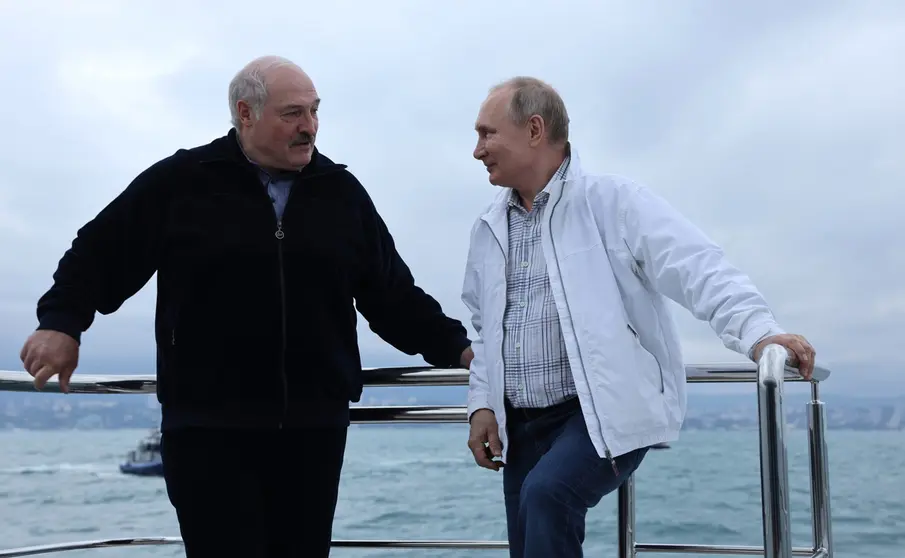EU foreign ministers agreed on Monday to slap their toughest punitive measures yet on Belarus, a package of economic sanctions targeting sectors that benefit the government of President Alexander Lukashenko.
The agreement, struck at a meeting in Luxembourg and confirmed by two diplomatic sources, follows weeks of tough negotiations over which economic actors to hit.
Luxembourg's Foreign Minister Jean Asselborn said a total of seven cash cow areas will be hit, including tobacco, potash - a potassium-rich salt used in fertilizer - petroleum products and financial services.
"I think these are sanctions that will hurt. And I hope they hurt so much that they bring the regime to its knees," Asselborn told journalists before the meeting.
German Foreign Minister Heiko Maas said the move would "contribute to financially drying out the regime."
It is the bloc's latest response to the forced landing of a Ryanair flight and the arrest of a Belarusian dissident blogger last month. The EU already sealed off its airspace to carriers from its eastern neighbour.
The punitive measures - which aim to tighten the vice on the authoritarian government of Lukashenko and strengthen his opponents - must still be formally adopted, but their basic remit is now fixed.
However, it is unclear exactly they will be implemented, according to Asselborn. "We need a bit of time to translate this into reality."
The bloc is also set to blacklist dozens more individuals or organizations that support Lukashenko on Monday, adding to the close to 90 targets already subject EU travel bans or asset freezes.
Belarusian opposition leader Svetlana Tikhanovskaya, who has been calling for tough EU measures, also spoke with the ministers in Luxembourg.
"Sanctions aren't a silver bullet, but they can help to end violence and release people," she tweeted.
Tikhanovskaya currently lives in exile in Lithuania. She is considered by many to be the winner of the disputed presidential election of 9 August 2020, after which Lukashenko had himself proclaimed president again.
The EU no longer recognizes him as head of state and claims the poll was neither free nor fair.
Protasevich
The bloc has been calling for the release of Roman Protasevich and his girlfriend Sofia Sapega, both of whom were detained after being hauled off the Vilnius-bound Ryanair flight, along with hundreds of political prisoners.
Most of the targets to be added to the EU blacklist immediately on Monday are accused of helping to repress demonstrators, opposition figures or journalists, but others were chosen for a link to the flight diversion.
Due to the ongoing repression of the democracy movement in Belarus, the EU already adopted several packages of sanctions targeting Lukashenko's supporters last year, as well as the president himself.
UN Human Rights Commissioner Michelle Bachelet voiced concern on Monday about a continued deterioration in the country highlighting "severe restrictions" to freedom of expression and assembly, worrisome raids on civil society and media and judicial persecution of activists and journalists.
"We continue to receive numerous allegations of arbitrary arrests and detentions, torture and ill-treatment," she said in a statement.
The 66-year-old Lukashenko has led Belarus - a former Soviet republic in Eastern Europe bordering EU states Poland, Lithuania and Latvia - for more than a quarter of a century, tolerating little dissent.
Minsk has grown closer to Moscow in recent years. But Lukashenko has also maintained relations with EU partners in his almost 27 years in power.












